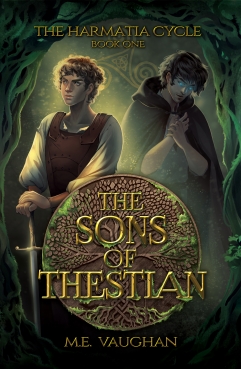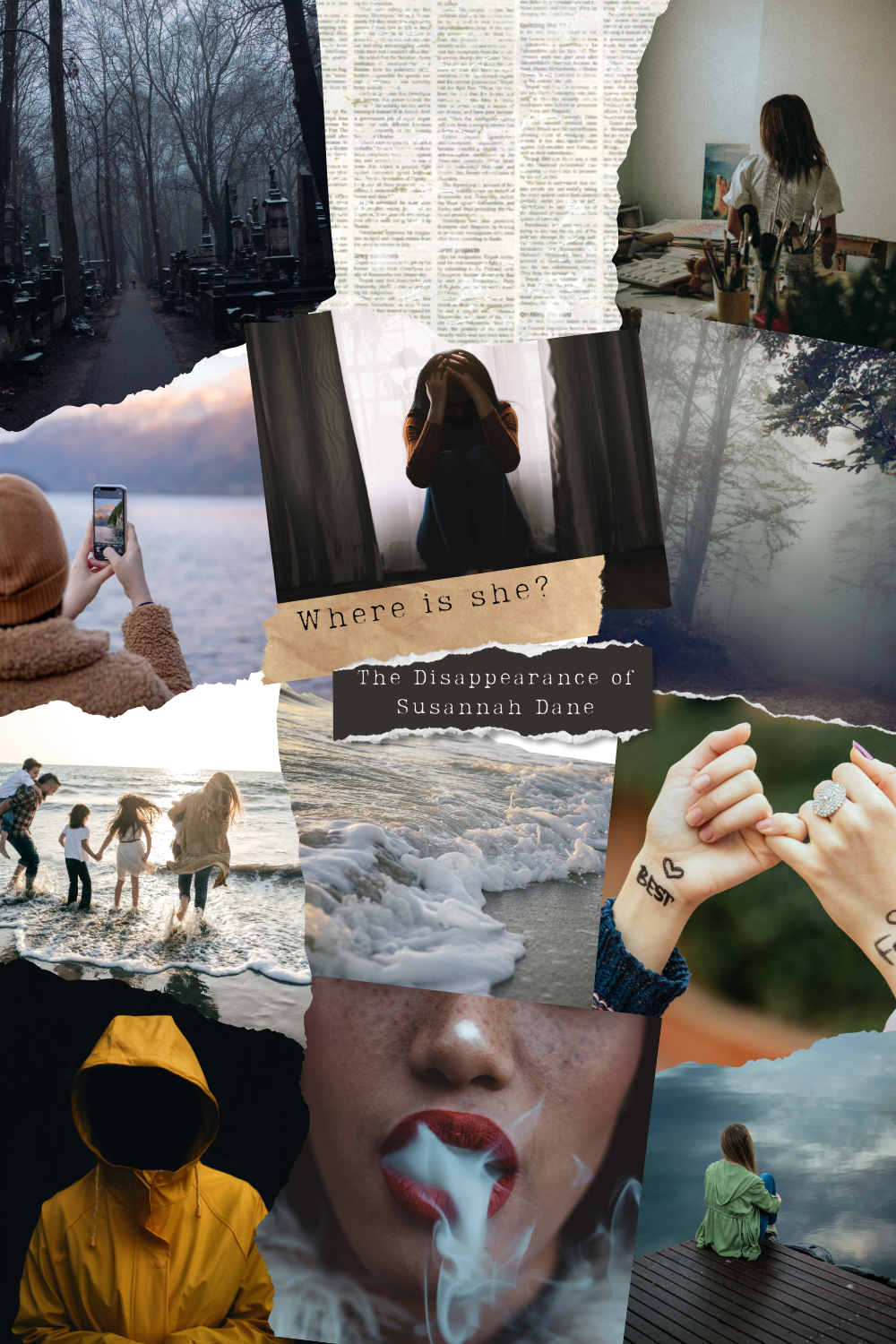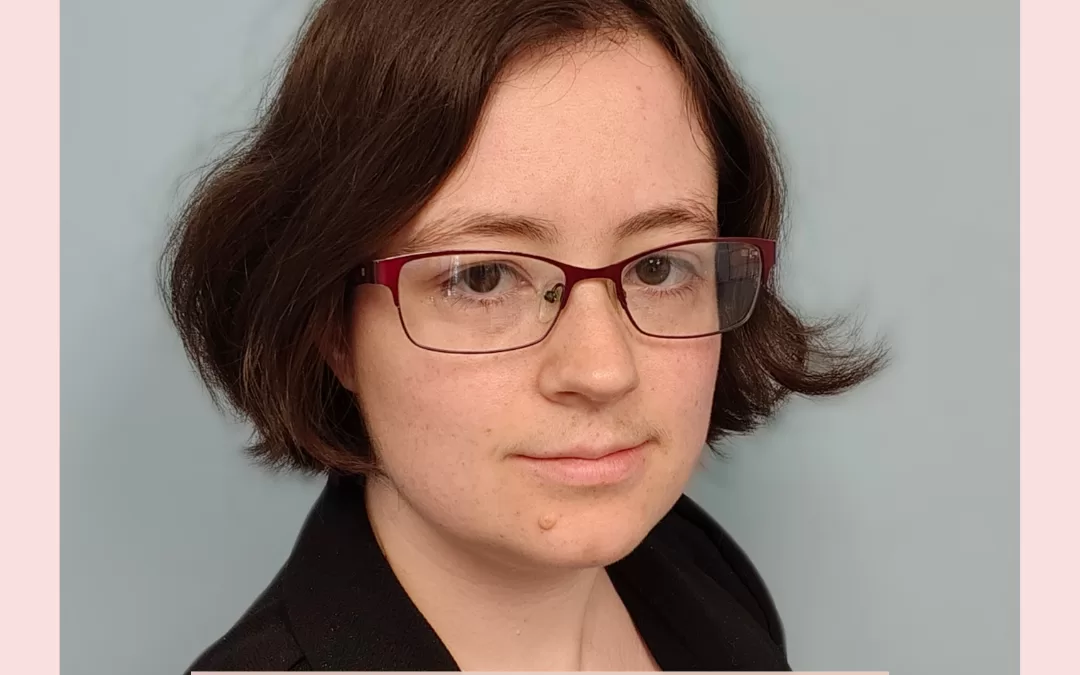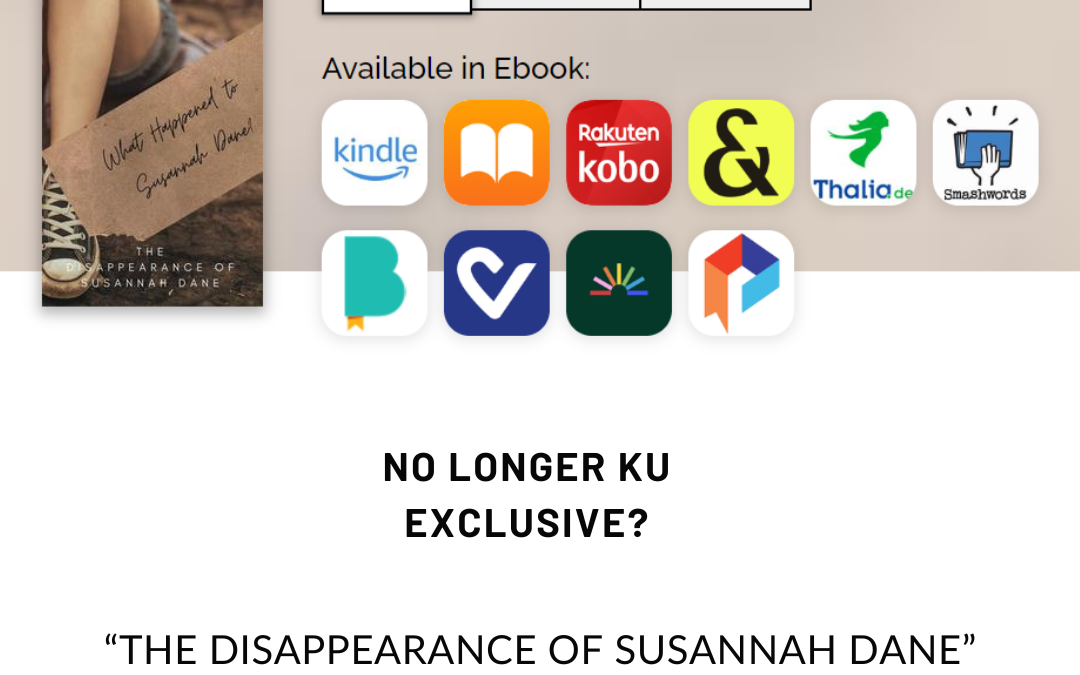I met Madeleine a few years ago, when she designed a gorgeous cover for me (the book has not been released.) I started out as a fan of her gorgeous art and I am now a fan of her books. I reached out to M.E. and asked her all the questions I have been dying to know about her book series and her writing process.
About M.E. Vaughan, from her website:
“M.E. Vaughan is a binational Anglo-French novelist and singer-songwriter, who specialises in fantasy, magic realism and mythology. Head writer, and founding member of the Hampshire-based Gaming Studio Enigmatic Studios, she is a Creative Writing lecturer at the University of Winchester, and has a 1:1 Bachelors degree in Creative Writing.
Her first novel The Sons of Thestian was published in March, 2015, with the sequel Blood of the Delphi following in February 2017. The books are part of a series called The Harmatia Cycle which draws on Celtic and Arthurian mythology, but modernises the typical archetypes and gender-roles within them. As well as working in fantasy, M.E. Vaughan also enjoys Mystery and Drama and writes personalised murder mystery games for parties.
In 2016, M.E. Vaughan and fellow author J.A. Ironside began an audio series named Dissecting Dragons, which is a discussion-based pod-cast that focuses on the ins and outs of speculative fiction. The series has invited a number of guests onto the show so far to discuss varied topics, and is designed primarily – as the tagline says – by writers and readers, for writers and readers.
Musically, M.E. Vaughan has achieved a Grade 8 Distinction, and a further Advanced Certificate in Singing, and is a keen composer. She was awarded the Excellence Awardee music scholarship at the University of Winchester, which granted her a bursury to pursue her musical interests. Later, when she graduated, she worked as the Foundation Music Intern, and an events administrator, and continues to run a folk and world music choir at the University today.
Artistically, M.E. Vaughan is a hobbyist, who enjoys painting, drawing and photomanipulation.”
Connect with M.E. Vaughan on Twitter or her website or tune into her wonderful podcast Dissecting Dragons.
Eliza: When you sat down to write The Sons of Thestian what came to you first? The character, idea, or maybe the plot?
M.E.: The book started with the prologue. I got the idea whilst walking home one winter. I was in Holland at the time, in the Hague, and darkness was falling. The streets were absolutely deserted, and I passed by this huge, old Gothic building. In the distance the bells tolled for the hour, and I remember the thought crossing my mind: ‘I need to hurry home—after the bells toll, the city belongs to the monsters.’
When I got home I sat and wrote the prologue, about these two men fleeing these monsters. I had no idea where I was going with it, and when I’d finished writing the prologue, I sat on it for several months. I had no idea what the plot was, but the characters came to life, and the next thing I knew, they were pulling me onto their adventure.
Eliza: That is amazing. It sounds like you might lean more toward “pantser” than “plotter” then. How extensively do you plot your story before you write it and how many times do you let yourself stray from that plot?
M.E.: I like to know where I am headed, but leave the journey a surprise. It’s like going to a music festival—there are acts you must see, and you plan around those, but that between time is the place of discovery where you may just discover your new favour band. I often know where I’m going, but not necessarily how I am getting there, and on several occasions characters have done something which I wasn’t expecting, or ended up down a rabbit-hole I never anticipated. For example, Arlen Zachary would never have become the character he is if I’d stuck totally with the original plan, and that’s a good thing! I think if you plan too rigidly and don’t leave room, your characters can end up feeling quite stunted and one-dimensional, and the story can lack soul.
Eliza: I think authors can really complicate the editing process and make it more daunting than it needs to be. When I started writing, I would rewrite a manuscript half a dozen times before I let anyone look at it. I’m not as thorough anymore and try to stick to just 3 drafts before I send it off to a beta or an editor. How many drafts do you do and has that number changed since you started writing?
M.E.: It can really depend on the book. I have a general rule which is that for every one hour you spent writing it, you’ll probably spend a minimum of three hours editing. I certainly wouldn’t send a first draft to an agent or a publisher. That said, I have sent first-drafts to my betas and editor.
I think writers can struggle to find that balance between sending their work out too soon, and nit-picking over it for too long. I don’t suffer from the latter any more, mostly because of my degree. We did frequent workshopping, and I came to depend on that feedback and encouragement. I no longer see it as one of the final steps you take in editing, but as an essential early step instead.
As such I am often impatient to get my draft to my beta, as I am keen to get on with editing!
Eliza: I can see how that could be very helpful. Have you ever given up on a book and thrown away a manuscript?
M.E.: Yes, though I don’t really see it as ‘throwing away’. It’s important to remember that when you become a writer, you are more than any one of your books—you are a creative machine.
I have a ton of stories which never got further than my computer screen. Books I loved, stories which didn’t have a market, projects that petered out—absolutely none of them were a waste of time. I was practising my craft, sharpening and shaping it. And that juvenile novel I wrote when I was thirteen? Sure, it will never be published, and I’ll never finish the series, but there are lessons and themes and even characters which have been born out of it and appeared in my current manuscripts. I think it’s ok to let go of a project, even if you have been working on it for some time—clinging to something which isn’t doing anything for you anymore can be toxic to your creativity and stunt your chance of growing and creating something new. In my experience, if a story really wants to be told, it won’t let you go…And even if you take a break from it, to pursue other things, it’ll grow and change, and wait for you to be ready again. And one day, you’ll open up the folder, and find it, and go, “Gods, I remember you.” And you’ll fall right back in-love.
Eliza: Do you have any special rituals or routines that you have to do before you write or edit?
M.E.: Not particularly no, though I do physically walk-through action sequences and fight scenes with music. I call it ‘Dragoning’ and it is probably the single most embarrassing thing I do, because I sure as hell don’t look nearly as cool as my characters, and going through the movements of several characters by yourself is always going to be…tricky. It’s still something I enjoy immensely, and I do it almost every day. I’ve come up with some of my more epic sequences this way!
Eliza: I love that, you have to find what works for you! If you were to pick one gif to describe your reaction to the ending of The Sons of Thestian, what would it be?
M.E.: 
Eliza: Now I have to ask you more about your book series, The Harmatia Cycle. If you take one look at the reviews for your books, you see so many positive comments about the world building. You are also a talented artist. Did you create maps or draw scenes from the series?
M.E.: I did actually draw the map myself, yes! I’ve also done a number of diagrams all about the magic, and star systems, and all that kind of thing, none of which have ever seen the light of day! I have also done illustrations of the characters, though I haven’t drawn any of the scenes in particular.
Eliza: I see that an illustrator is credited on Amazon. Are there illustrations within the book?
M.E.: No, it’s just the front cover. Stef Tastan is an incredible artists and did such an amazing job with the artwork that I wanted her to be credited as much as possible.
Eliza: What is your method for keeping track of all the details that come with expansive world building?
M.E.: It’s inevitable that I’ll forget something and have to check the manuscript or website for it, but for the most part I keep everything in my head. I think it’s because the countries and cultures in Harmatia have got such strong associations in my head. I have spent so much time in each of them, that they’re very real to me! When I step into Bethean, I feel very Betheanian, which is a mixture between the way I feel about Ireland and about my home in France. Those feelings bring up a number of thoughts and feelings which are what originally developed Bethean, so they’re all easy to remember!
Eliza: I read that your book contains some flashbacks. It sounds like readers loved them and I was surprised to read that because it can be hard to predict if they will be received well. How did you fit them into the story in a way that would entertain readers?
M.E.: I think jumping times and place in any book always has the potential to be a little jarring, so it’s all about placing, and how the flashbacks are used. I tried to use flashbacks as transitional sections whereby, even though it was going back, it was moving things forward and connecting other scenes.
Eliza: On Twitter, you mention that you have an LGBTQ character in the book. I was excited to read that because you don’t see many YA novels, particularly in Fantasy, where there are LGBTQ characters. Without giving us any spoilers, can you tell us a little about this character (characters?) and your inspiration for them?
M.E.: The Harmatia Cycle has lesbian, gay, bisexual, trans and ace characters. Most predominantly you have Rufus Merle, the protagonist, who is openly bisexual. As a bisexual woman myself, I created Rufus during a time when I was very much closeted but also trying to explore the nature of my own sexuality. Having Rufus as a bisexual character was very important to me, and having his story not evolve around his sexuality was equally as important. My ambition with The Harmatia Cycle is to reflect the diversity within our societies, whilst ensuring that no character simply becomes their sexuality or gender. I hope very much I have achieved this.
Eliza: I thinks it’s wonderful to strive for a broad spectrum of representation in your works. Your book is lengthy at 751 pages. Do you think that YA readers are yearning for longer novels in today’s markets?
M.E.: I think the YA audience grows every year. I believe this is because YA pushes boundaries which many adult novels don’t. If you’re looking for representation, I find YA is more likely to offer it, so it attracts a large range of readers of all ages. Technically, The Harmatia Cycle is too long for what is usually expected in YA, but I think it’s foolish to underestimate Young Adult’s capacity to concentrate and get through a longer book. I mean, Harry Potter was original written for Middle Grade! A story will be as long as it needs, and I think my readers would find it less satisfying if I cut corners in delivering that story all in an attempt to appease a pre-existing template.
Eliza: There used to be competitions between my childhood friends to see who could read the longest books. I think if we can challenge 15 year olds in high school to read literary classics then we can expect they can finish a book that is relevant to them. My last question for you is about your publishing company. Do you plan to publish other writers as well as your own works there?
M.E.: For the time being Mag Mell Publishing is a press for my own works and projects. I intend, at some point, to perhaps publish a collection of anthologies featuring other writers as well, but for the time being, it’s a very personal press.
Eliza: That is great. Well, thank you so much for taking the time to answer all of these questions. I wish you the best of luck with your journey as an author!

If you would like to purchase the first book in The Harmatia Cycle, The Sons of Thestian is available on Amazon, Book Depository, and Waterstones.





0 Comments